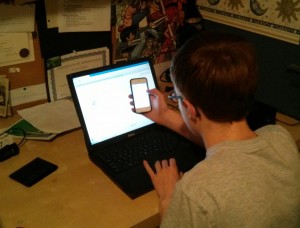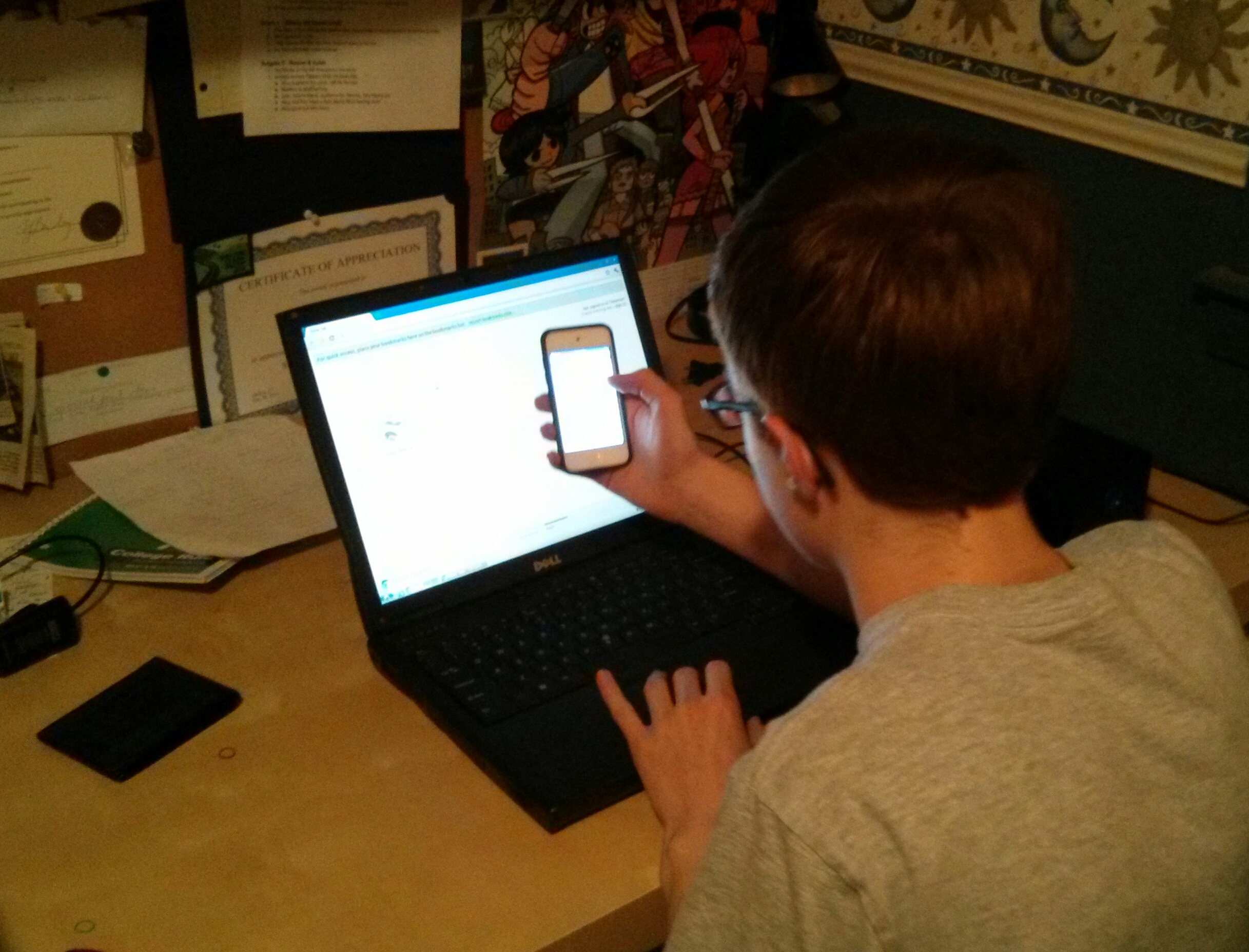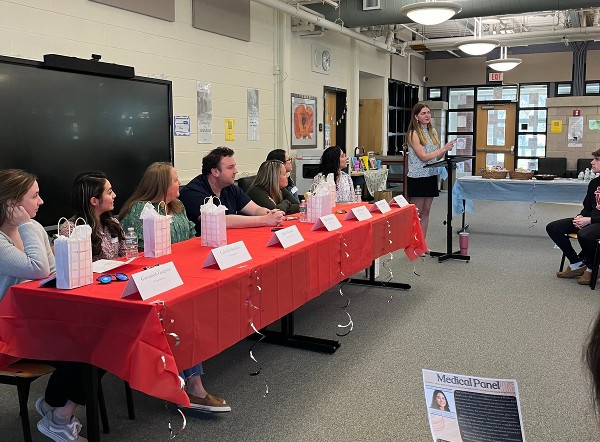By Kaylee Walsh
 Many people in their tween or teenage years most likely put checking some sort of website or social cell phone app into their daily routine. The question is, “Are these websites really necessary?” Being a part of social networks to keep up with friends, family, and even celebrities is not a problem, as long as the social network is used wisely and carefully. What is not quite important and, instead, dangerous is to share every part of a personal life with middle-aged strangers halfway across the globe.
Many people in their tween or teenage years most likely put checking some sort of website or social cell phone app into their daily routine. The question is, “Are these websites really necessary?” Being a part of social networks to keep up with friends, family, and even celebrities is not a problem, as long as the social network is used wisely and carefully. What is not quite important and, instead, dangerous is to share every part of a personal life with middle-aged strangers halfway across the globe.
You would not go up to a random stranger on the street and tell them personal information without making sure they could be trusted first. However, when people say private things online, anyone can see the information. People may act like they do not care about your personal life, but many of these predators may be secretly using this information to find out more about you, grow personal with you, and end up putting you in an uncomfortable situation. Family and friends can know this, but no one else needs to know. Giving out this information online is just like telling a stranger on the street all about your life. Neither of the situations is necessary, and they can turn out to be much more harmful than expected.
You would not let just anyone into your house and allow them to take note of everything they see. Pictures can be attached to their exact location. Taking pictures from home can help someone detect where you live. Like sharing your life story with a stranger, giving any way of detecting your location can lead to a dangerous effect. Saying or taking a picture of where you are is just as harmful as opening your front door and not worrying about whoever comes inside.
You would not go to a college or a job interview and only say inappropriate words. Instead, you would tell them about the amazing things you can do and why you want to be accepted. However, saying or taking pictures of inappropriate or cruel things online might be the barrier between you and the great future ahead. Colleges and employers look online to find more information and find out if you are a good fit. Doing or saying things that are profane or improper will show them that you might act that way and not be right for the university or profession. So, being unacceptable on the Internet may tell your future, because your lifestyle is your resumé.
Fortunately, LRMS has some students who understand the dangers of technology usage. These students will hopefully be able to share their knowledge with other students who are not as safe online. At the cyber lifestyle assembly on October 12, students were also given information that can help them with online safety. The assembly taught some great things that changed the way the Internet should be used and should definitely be taken into consideration.
Some LRMS students spoke about their technology use, and they have learned the importance of staying safe online.
“I am not a part of the social network. I feel that talking to people in person is more effective than sharing pictures, and I do not understand why some people earn so much money for allowing people to talk and share pictures,” says Jake Stow, a seventh grader at LRMS. “I do not think it is safe either. Even if you delete things, anyone can still find it.”
Another LRMS student, who would like to remain anonymous, tells that they are not in programs online. Their mother teaches computer safety and does not allow them to go on these websites because of her knowledge.
“I am on some social sites, but I do not give out any personal information,” says Cassie Crowley, a seventh grader at LRMS. “It is not safe to give out this information because anyone can see it and find out more about you.”
These students know how to safely use technology. But as LRMS learned at the assembly, there are still some tweens and teenagers who do not have this knowledge. Teenagers spend a whopping seven and a half hours a day online, which is longer than the time you spend learning in school. Also, some teenagers are not as careful about their personal information. The assembly discussed some teenagers who found themselves in life-threatening decisions because of their openness online. So, teenagers can definitely use a makeover of their Internet use.
No one was on social media 50, 20, or even 15 years ago, so the current generation can definitely live without so much social technology. Being inventive and caught up in the world is great, but online activity does not need to be taken to the extreme. The people who created these websites probably wanted social sites to be a method of connecting with close friends when it cannot be done face to face. However, this generation just interpreted it wrong. To prevent the brutalities of cyber-bullying, abuse, or being in danger of a predator met online, the best decision is to start only sharing with friends, in person, that can be trusted.
The entire world should not be expected to hide private information. The world makes the Internet seem much more crucial than reality. Complete strangers should not know the names, locations, and ages of people who are unknown to them, especially adolescents. The path to a safe online lifestyle will be paved if your life is kept confidential from the online world.



















